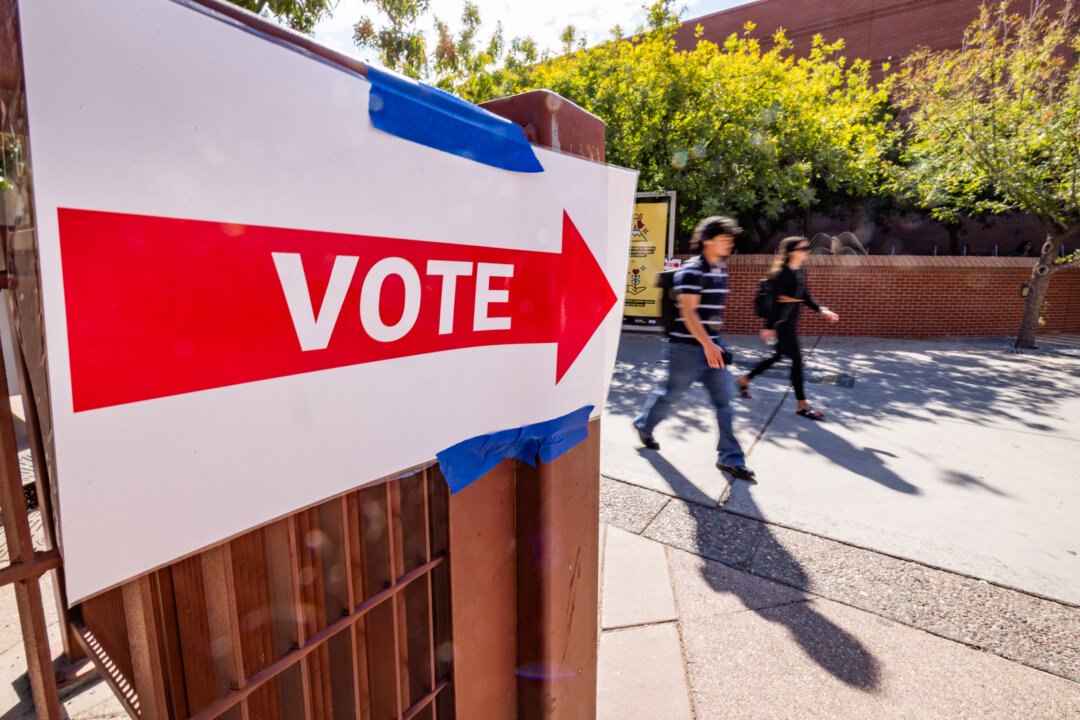Arizona’s secretary of state must disclose a list of as many as 218,000 voters affected by a glitch at the Motor Vehicles Division.
A judge has ordered Arizona to release a list of registered voters whose citizenship status was not verified due to a coding glitch in the state’s record-keeping system.
Arizona Secretary of State Adrian Fontes has resisted disclosing the list, citing concerns that the individuals on it could face harassment.
In an Oct. 31 ruling, Maricopa County Superior Court Judge Scott A. Blaney instructed Fontes to provide the list to Strong Communities Foundation of Arizona, also known as EZAZ.org, a conservative watchdog group that filed a public records lawsuit to access the data.
James Rogers, senior counsel for America First Legal (AFL), which filed the lawsuit on behalf of EZAZ.org, said that the lawsuit was about restoring transparency and making sure county recorders can verify the citizenship status of voters.
“A majority of Arizonans no longer trust the election system of our state. One of the reasons is the lack of transparency from our state’s elected officials,” Rogers said in an Oct. 31 statement. “It is unfortunate that Secretary Fontes so aggressively opposed our common-sense efforts to help restore trust in our state’s election system. This was a case we never should have needed to file.”
The list, which contains as many as 218,000 voters, includes individuals who did not provide documentary proof of citizenship when registering. The affected voters were mistakenly marked as having provided the documentation due to a flaw in the data systems managed by Arizona’s Motor Vehicles Division (MVD) and the secretary of state’s office.
The order reflects Arizona’s ongoing efforts to manage the voter eligibility requirements introduced by Proposition 200, a law passed in 2004 that mandates proof of citizenship for voters participating in state and local elections.
According to a press release from Fontes’s office, the coding error impacts voters across political affiliations, including approximately 79,000 Republicans, 61,000 Democrats, and 76,000 individuals affiliated with other parties. Even though these individuals had sworn under penalty of perjury that they are U.S. citizens, the glitch erroneously caused them to appear as though they had provided citizenship documentation.
The judge ordered Fontes to release the list to EZAZ.org by Nov. 4, although he imposed restrictions on the handling of the information. The watchdog group is barred from contacting any of the individuals on the list until Nov. 6, or from distributing any personally identifiable information about them to third parties, with limited exceptions for Arizona county recorders, the Legislature’s leadership, and members of the House and Senate Elections Committees.
In response to the lawsuit, Fontes argued that releasing the list could place voters at risk of harassment.
Highlighting the lack of specific evidence supporting Fontes’s concerns, the judge noted that Arizona public records law presumes disclosure unless there’s a clear threat to the state’s interests or individual privacy.
“Thus, the public official seeking to withhold public records from disclosure bears the burden of overcoming the presumption favoring disclosure,” the judge wrote, adding that EZAZ.org had a history of adhering to public engagement standards and had not misused sensitive voter data in the past.
Expert testimony from University of Chicago Professor Robert Pape on election-related threats was dismissed by the court as speculative and overly generalized.
“The credibility of Professor Pape’s testimony and report was further diminished by what appeared to be gratuitous political bias in his report and in his testimony,” the judge wrote in the order.
In response to a request for comment on the ruling, a spokesperson for Fontes’s office told The Epoch Times in an emailed statement that “we are reviewing the decision and weighing our options.”
Earlier, Fontes’s office stated that the affected voters remain eligible to vote in all races—federal, state, and local—for the 2024 general election. The Arizona Supreme Court also declined to restrict these individuals’ voting status to federal-only ballots in its Sept. 20 decision, siding with Fontes’s guidance that they should retain full-ballot eligibility for this election.
The Arizona voter registration database has now correctly flagged the impacted individuals as needing proof of citizenship and election officials will contact them regarding their status after the Nov. 5 election “if necessary,” Fontes’s office said in a Sept. 30 statement.

